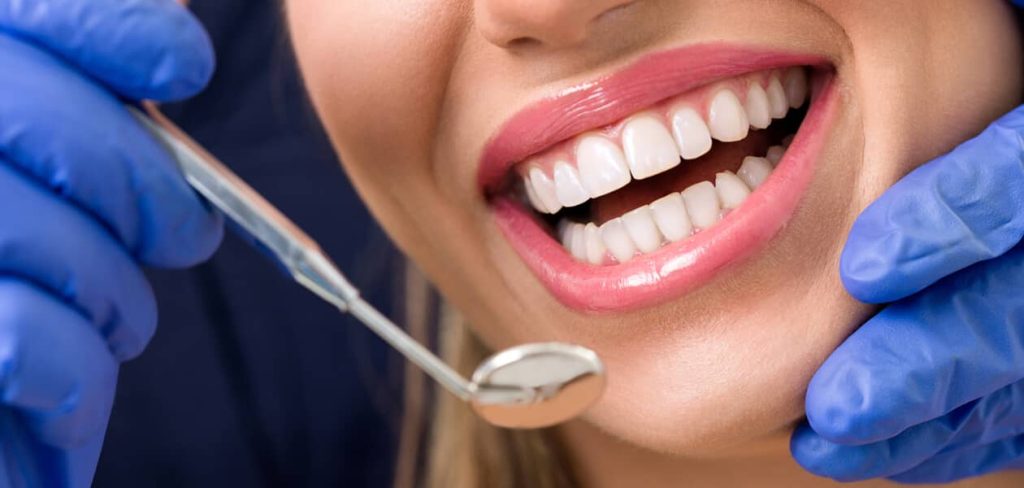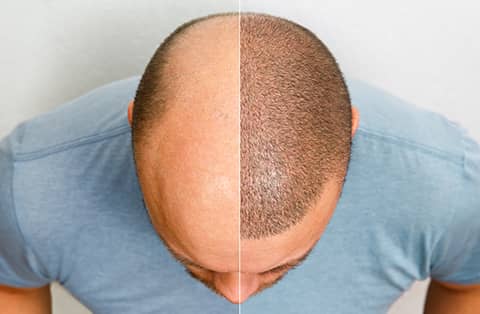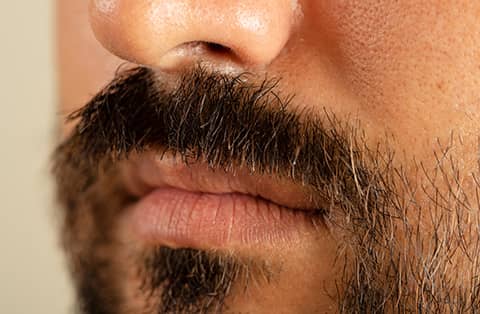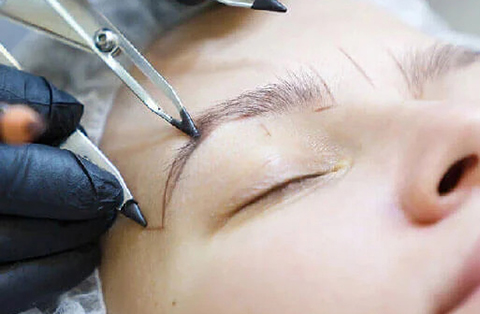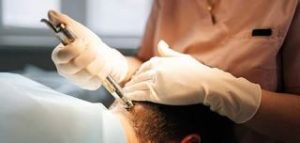Are you considering dental implants but unsure which option is right for you?
The choices can be overwhelming, especially when comparing All-On-4, All-On-6, and All-On-8 dental implants. These innovative solutions offer different benefits and considerations, making it crucial to understand their distinctions.
This article will guide you through each type, exploring their unique features, advantages, and potential drawbacks. Discover which dental implant option best suits your needs, ensuring a confident and informed decision for your oral health. Read on to find out more.
What is All-On-8 Dental Implants?
All On 8 dental implants are a comprehensive solution for full-arch tooth replacement. This method involves placing eight implants in the upper or lower jawbone to support a full set of prosthetic teeth. The increased number of implants offers enhanced stability and distribution of force, which is particularly beneficial for individuals with significant bone loss or those seeking a more secure and durable option.
All-On-8 implants provide a natural look and feel, improved chewing function, and long-term oral health benefits. They can significantly improve the quality of life for those needing extensive dental restoration.
Benefits of All-On 8 Dental Implants
All-On-8 dental implants offer numerous advantages for individuals seeking a complete tooth replacement solution. These benefits go beyond aesthetics, providing practical and long-lasting improvements to oral health and functionality.
Enhanced stability and support
Improved chewing and speaking ability
Natural look and feel
Even distribution of biting forces
Reduced risk of bone loss
Long-lasting durability
Better overall oral health
Increased confidence and quality of life
Understanding the All on Eight Dental Implant Procedure
The All-On 8 dental implant procedure is a meticulous process designed to replace an entire arch of teeth with the support of eight strategically placed implants. This method provides a stable, durable, and aesthetically pleasing solution for patients with significant tooth loss. Here is a detailed step-by-step explanation of the procedure:
Initial Consultation and Assessment:
The process begins with a thorough consultation with your dentist or oral surgeon.
During this visit, a comprehensive dental examination is performed, including X-rays and 3D scans, to evaluate the condition of your jawbone and overall oral health.
Your dentist will discuss your medical history, expectations, and any concerns you may have.
Treatment Planning:
Based on the assessment, a customized treatment plan is developed.
This plan includes the precise placement of the eight implants, the type of prosthetic teeth to be used, and any preparatory procedures that may be needed, such as bone grafting.
Pre-Surgical Preparations:
If necessary, preparatory procedures like bone grafting or tooth extractions are performed to ensure the jawbone is ready to receive the implants.
A temporary set of teeth may be provided to maintain aesthetics and functionality during the healing period.
Implant Placement Surgery:
The surgery is typically performed under local anesthesia, though sedation options are available for patient comfort.
The dentist makes incisions in the gum tissue to expose the jawbone.
Using precise measurements from the treatment plan, eight implants are placed into the jawbone at specific angles and positions to maximize stability and support.
The gum tissue is then sutured closed, and temporary prosthetic teeth are attached to the implants.
Healing and Osseointegration:
The healing period, known as osseointegration, lasts several months. During this time, the implants fuse with the jawbone, creating a solid foundation for the permanent prosthetic teeth.
Regular follow-up appointments are scheduled to monitor healing progress and ensure the implants are integrating correctly.
Final Prosthetic Placement:
Once osseointegration is complete, the temporary teeth are replaced with custom-made permanent prosthetic teeth.
These prosthetics are designed to match the natural look and feel of your original teeth, providing a comfortable and aesthetically pleasing result.
Post-Procedure Care and Maintenance:
After the final prosthetics are placed, your dentist will provide detailed instructions on how to care for your new teeth.
Regular dental check-ups and proper oral hygiene practices are essential to maintain the longevity and health of the implants.
The All On 8 dental implant procedure offers a transformative solution for individuals seeking a full-arch tooth replacement. By understanding each step of the process, patients can approach their treatment with confidence, knowing they are on their way to achieving a healthy, beautiful smile.
Factors Influencing the Choice Between All-On-8, All-On-6, and All-On-4
Choosing between All-On-4, All-On-6, and All-On 8 dental implants requires careful consideration of several factors. Each option offers unique benefits, but the best choice depends on your specific needs and circumstances.
Whether considering All on 4, All on 6, All on 8, or any other variant of a full arch implant-supported design (collectively referred to as “full arch” or “all on x”), there is no alternative that rivals its impact on quality of life, long-term durability, bone preservation, health enhancement, functional improvement, and overall satisfaction. The fixed implant-supported prosthesis offers significant advantages over conventional removable complete dentures.
Here are the key factors to consider when making your decision:
Factors Influencing the Choice Between All-On-8, All-On-6, and All-On-4:
Amount of jawbone density and volume
Overall oral health and medical condition
Desired level of stability and support
Budget and financial considerations
Time available for the procedure and healing
Long-term durability and maintenance needs
Aesthetic preferences and personal goals
Recommendations from your dentist or oral surgeon
Comparison Chart: All-On-4 vs. All-On-6 vs. All-On-8 Dental Implants
Feature | All-On-4 | All-On-6 | All-On-8 |
Number of Implants | 4 | 6 | 8 |
Stability | Moderate | High | Very High |
Jawbone Requirement | Less bone density needed | Moderate bone density required | Higher bone density required |
Surgical Complexity | Less complex, shorter surgery | Moderate complexity | More complex, longer surgery |
Healing Time | Typically shorter | Moderate | Typically longer |
Cost | Generally lower | Moderate | Generally higher |
Durability | Good | Very good | Excellent |
Force Distribution | Moderate | Better than All-On-4 | Best |
Ideal For | Patients with limited bone | Patients needing more stability | Patients requiring maximum support |
Maintenance | Standard oral hygiene practices | Standard oral hygiene practices | Standard oral hygiene practices |
This chart provides a clear comparison of the different dental implant treatments, helping you understand the key differences and benefits of each option.
How Much Does All-On-8 Implants Cost?
The cost of All On 8 dental implants can vary significantly based on several factors. Here are some key considerations that influence the overall expense:
Geographic Location: Prices can vary depending on the region and local cost of living.
Dentist’s Expertise: More experienced specialists may charge higher fees.
Pre-Surgical Procedures: Additional treatments like bone grafting or extractions can increase costs.
Materials Used: The type of prosthetic teeth and quality of implants affect pricing.
Clinic Facilities: Advanced technology and clinic amenities may contribute to higher costs.
On average, the total cost for All-On-8 implants ranges from $30,000 to $60,000 per arch. This estimate includes the implants, abutments, prosthetic teeth, and surgical procedures. It’s essential to consult with your dentist for a precise quote tailored to your specific needs and circumstances. Financing options and insurance coverage may also be available to help manage the cost.
Frequently Asked Questions
How much do All-On 8 Dental Implants cost in Turkey?
In Turkey, All-On 8 dental implants typically cost between $10,000 and $20,000 per arch. Prices vary based on the clinic, dentist’s expertise, and additional treatments needed. Turkey offers high-quality dental care at more affordable rates compared to many Western countries, making it a popular destination for dental tourism.
How much do All-On 8 Dental Implants cost in the UK?
In the UK, All-On 8 dental implants usually cost between £20,000 and £30,000 per arch. Costs depend on the clinic, dentist’s expertise, and any additional procedures needed. Despite the higher expense, the UK offers excellent dental care and advanced implant technology. Consult your dentist for a detailed quote.
Is it safe to have dental implants in Turkey?
Yes, it is safe to have dental implants in Turkey. The country is known for its high-quality dental care and experienced professionals. Many clinics use advanced technology and adhere to international standards. Always research the clinic and dentist, and ensure they have good reviews and proper certifications.
How many implants are needed for full set of teeth?
For a full set of teeth, typically 4 to 8 implants per arch are needed. All-On-4 uses 4 implants, All-On-6 uses 6, and All-On-8 uses 8 implants. The number depends on the patient’s bone density and desired stability. Consult your dentist for a personalized recommendation.
How many trips to Turkey for dental implants?
Typically, two trips to Turkey are needed for dental implants. The first trip involves consultations, any necessary extractions, and implant placement. After a healing period of 3-6 months, the second trip is for placing the permanent prosthetic teeth. Your dentist will provide a detailed timeline.
Why are dental implants cheaper in Turkey?
Dental implants are cheaper in Turkey due to lower operational costs, favorable exchange rates, and competitive pricing among clinics. High-quality care and advanced technology are still maintained. Many dentists in Turkey have international training and certifications, ensuring standards comparable to Western countries at a more affordable price.
Who should not get dental implants?
Individuals with uncontrolled diabetes, severe gum disease, or insufficient jawbone may not be suitable for dental implants. Heavy smokers, those with certain autoimmune diseases, and patients undergoing cancer treatment should also avoid implants. A thorough evaluation by a dentist is necessary to determine eligibility.
How painful are dental implants?
Dental implant surgery is generally not very painful. Local anesthesia is used during the procedure to numb the area. Post-surgery, patients may experience mild discomfort or swelling, manageable with over-the-counter pain relievers. Most report minimal pain, especially compared to tooth extractions. Your dentist will provide care instructions.
Which is better bridge or implant?
Dental implants are often better than bridges because they last longer, preserve jawbone health, and do not affect adjacent teeth. Bridges are quicker and may be less expensive initially, but they can require more maintenance and replacement over time. Consult your dentist for a personalized recommendation.

